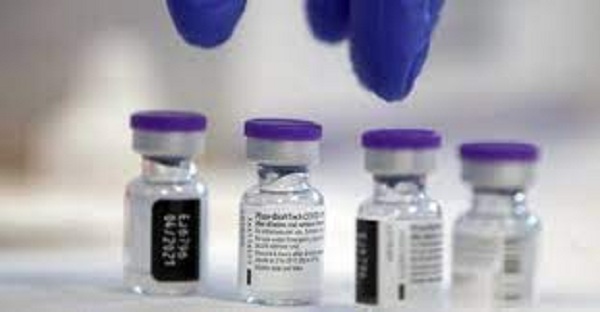Shares of BioNTech, Moderna and Pfizer will be closely watched on Tuesday after the CDC’s advisory panel, the ACIP, remained circumspect about the need for a booster dose of the vaccine in the US, leaving the door open for the agency to scuttle the Biden Administration’s push for booster jabs.
While Israel is the world leader in terms of the largest percentage of the population to have received a third “booster” dose, other countries, including Turkey, have started doling them out, too. And despite the WHO’s pleas for western nations not to be too greedy with their jabs, the Biden Administration has repeatedly announced that it’s working on approvals for booster jabs eight months after the second dose.
Read Also: ‘This Ends The Debate’ – Israeli Study Shows Natural Immunity 13x More Effective…
Read Also: “Natural Immunity” Needs to Be Included In COVID Mandate Plans – Pfizer Board Member Warns…
“CDC’s Advisory Committee on Immunization Practices (ACIP) remains circumspect about the need and timing for additional COVID-19 vaccine doses, despite more aggressive messaging from the White House,” said SVB Leerink analyst Daina Graybosch.
Graybosch believes the meeting indicates that an “uptick in third doses may not come as rapidly as investors have been expecting,”
A Jefferies analyst said ACIP appears to be leaning toward a narrow recommendation for high-risk patients, which doesn’t bode well for the White House’s proposal.
“We think the ACIP could be leaning toward just a narrow 3rd dose recommendation for high-risk people (healthcare workers, elderly) vs the more blanket recommendation the White House favors.”
In other news, Singapore’s health authorities are reportedly leaning toward allowing patients to receive any vaccine for their third jab, instead of recommending that those who got Moderna jab first time around get the same one this time, too – and vice-versa.
“Both approaches are being considered, with pros and cons to both strategies,” Associate Professor Lim Poh Lian, director of the High Level Isolation Unit at the National Center for Infectious Diseases, said.
“We have to look at which is more effective in protecting against the current and future virus strains circulating. We have to look at safety issues and different segments of the population.
“What might be good for older adults might have more side-effects in younger persons, so it may not be a one-size-fits-all recommendation. Those kinds of data just take time to be collected, analysed and reported,” said Prof Lim, who is also a member of the Expert Committee on Covid-19 vaccination.
The UK is also looking into mixing its vaccines for booster doses, after results from a recent study showed that patients who received a Pfizer jab after an AstraZeneca jab actually showed higher rates of resistance.



Leave a Reply